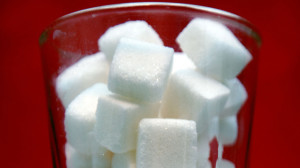
Sugar rather than salt could be to blame for high blood pressure.
If you suffer from high blood pressure, cutting out sugar might be more effective than ditching the salt.
For years, people have been urged to look at their salt intake if they want to lower the risk of things such as heart disease and stroke. But now US researchers claim people should look at how much sweet stuff they are eating instead.
The study was led by Dr James DiNicolantonio and appears in the American Journal of Cardiology.
“It is sugar not the salt that may be the actual causative factor for high blood pressure.
“This notion is supported by meta analyses of randomised control trials (large-scale studies) suggesting that sugar is more strongly related to blood pressure in humans than sodium,” it states.
“Encouraging consumers to hold the sugar, not the salt, may be the better dietary strategy to achieve blood pressure control.”
The New York and Kansas researchers also highlighted a recent study of 8,670 French adults that found no link between salt intake and high blood pressure.
Much has been made of sugar and its risks recently, with some experts even suggesting people completely cut it out. Very sweet drinks such as fruit juice and fizzy pop have been especially highlighted as risk factors when it comes to type 2 diabetes and obesity.
According to the US study, a part of the brain called the hypothalamus could be affected by high sugar levels, causing heart rate to quicken and blood pressure to rise. High sugar levels could also cause the body to produce more insulin, thus speeding up heart rate.
Dr DiNicolantonio even contradicts those who believe reducing salt intake will help lower obesity and heart disease levels.
“We argue the opposite; a reduction in salt intake may lead to an increased intake in processed foods (and added sugars) and, thereby, increase the risk of diabetes, obesity, and cardiovascular disease,” he said.
A good guideline to follow is to reduce your sugar intake to five to six teaspoons for women and seven to eight for men and to keep an eye on sugar content in packaged food and drinks.




 Driving Naari Programme launched in Chandigarh
Driving Naari Programme launched in Chandigarh






























